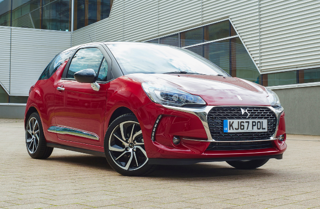By Barry Nielsen, automotive solutions director at Stericycle ExpertSolutions:
"The pace of change in vehicle technology is fast and furious, with connectivity in cars growing rapidly and software now accounting for around a quarter of the cost of building a vehicle. Connected car features range from safety management enhancements such as road condition alerts and approaching hazards through to entertainment apps for streaming and built in windscreen-display navigation services. In response to consumer demand and because significant revenue can potentially be derived from these services, the automotive sector is increasingly incorporating connected features as standard.
"But what happens when this technology goes wrong? Today, it’s not so easy to tinker under the bonnet and solve simple issues, because cars are complex, even at a basic level. The sheer number of components means that inevitably there are more parts to fail and evidence suggests that this is having a significant impact on automotive recalls.
"To illustrate the point, the Q4 2015 Stericycle Recall Index indicates that between Q3 and Q4 of 2015 automotive recalls increased by 16 per cent. The primary cause of these recalls was problems with components including electricals, air bags, brakes and steering systems.
"Car makers look to component manufacturers to provide the required, and necessary features in the car. If demand is big enough the parts can be produced in high volume and economies of scale dictate that they will be cheaper. This inevitably leads to one supplier dominating the market, providing a component at the lowest cost. But whilst in the short-term this suits competitive car makers it can also have a disastrous long-term effect. A well-documented case in point concerns eleven different automotive companies and millions of vehicles which are now in the process of being recalled while new air bags are fitted.
"In an industry where recalls are frequent and high profile, this incident stood out and it has provided much food for thought. The automotive sector has become increasingly proactive when it comes to vehicle safety, indeed in Q1 2015, our own Recall Index highlighted that all 69 motor vehicle recalls in Europe were voluntary, none were compulsorily imposed. Whilst this indicates just how much value manufacturers place on transparency and a well-handled, timely and proactive recall, the real objective is to reduce the risk of component (or engine) failure completely.
"However due to increasing demand this is very unlikely to happen, inevitably resulting in more widescale safety recalls.
"Which perhaps explains why car manufacturers, whilst keen to provide features their customers want, are wary of handing over too much of their finely tuned motor vehicle designs to the IT tech geeks. According to a report in the Financial Times, Rupert Stadler, chief executive of Audi said: “The customer, when he’s sitting in the car, is our customer and we have a lot of ideas how to entertain him, how to serve him, how to create added value for him.” And no doubt keep a careful eye on what components are being added, what risk there is of fault or failure, and how this balances with meeting consumer expectations.
"It certainly is a difficult balance to achieve. The connected car will soon be regarded as part of a customer’s digital lifestyle, but the more connected they are, the more open the car is to new problems, the most recent of which is cybersecurity. ‘Black box telematics’ may allow insurers to assess how carefully the car is driven, and Wi-Fi hotspots on the roof may deliver Internet access but by enabling data to be pulled out of, and pushed into the car, they also open the door to the big wide world of the hacker. Which is why 1.4 million vehicles in the US have already had to be recalled as a result of researchers finding that they could hack wirelessly into an automotive telematics system and shutting down the engine. As well as protecting customer safety, vehicle manufacturers are bound by regulations to protect customer data, which adds yet another layer of complexity to the connected car.
"Of course clever in-car technology already alerts drivers, whether it’s to let them know that the car needs a service, that the anti-lock braking system is faulty, or the rear passenger tyre needs air, but what we don’t yet have is a system to accurately monitor and audit how quickly and how frequently the driver responds to these electronic alerts.
"According to a survey earlier this year by Venson, 28% of fleet car drivers ignored dashboard warning lights, for example. Currently processes, regulations and laws protect both car manufacturers and consumers when it comes to safety.
"Where the connected car is concerned, however, the technology has moved ahead of safety regulations. This has left a gap which as we have seen is leading to more vehicle recalls, but more worryingly, is leaving consumers vulnerable to other safety risks. While we wait for the regulations to catch up, we must ensure best practice extends to all those elements of the connected car that help it to enhance our lives, without risking our lives or our livelihoods."


















Login to comment
Comments
No comments have been made yet.